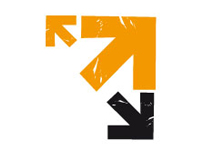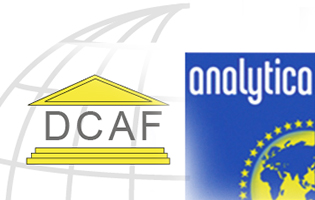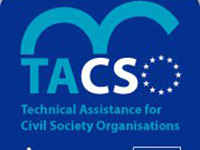
| Energy poverty workshop | |
| Енергетска сиромаштија во Југоисточна Европа: Преживувајќи го студот | |
| "Energy conference - “The future of energy, where Macedonia and EU meet” |
![]() Winners and Losers - Who benefits from high-level corruption in the South East Europe energy sector?
Winners and Losers - Who benefits from high-level corruption in the South East Europe energy sector?
![]() Warm, safe, clean energy. Which path is Macedonia taking
Warm, safe, clean energy. Which path is Macedonia taking
![]() Топла, безбедна, чиста енергија. Кој е патот кој го одбира Македонија
Топла, безбедна, чиста енергија. Кој е патот кој го одбира Македонија
![]() Ngrohtësi, siguri, energiji, e pastër. Cilën rrugë Maqedonia është duke e marrë
Ngrohtësi, siguri, energiji, e pastër. Cilën rrugë Maqedonia është duke e marrë
![]() ENERGY EFFICIENCY... JUST DO IT!
ENERGY EFFICIENCY... JUST DO IT!
Act now for warmer homes, local jobs and cleaner air!
![]() ЕНЕРГЕТСКАТА ЕФИКАСНОСТ... СЕГА!
ЕНЕРГЕТСКАТА ЕФИКАСНОСТ... СЕГА!
Преземете нешто за потопли домови, локални работни места и почист воздух!
"Energy conference - “The future of energy, where Macedonia and EU meet”
Analytica is proud to present the South East Europe 2050 Energy Calculator!
Our video game is out! Try the Energy Model 2050 for Southeast Europe and create your own scenarios
Energy modeling, climate change and the COP 21
South East Europe 2050 Energy Model – Conclusions on the Call for Evidence process.
A fair, clean, efficient energy system in SEE and the neighborhood
Analytica's input regarding the future of the Energy Community
Red flag report: INVEST IN HASTE, REPENT AT LEISURE
Инвестирај набрзина, ќе се каеш полека
As from December 2014, the SEE SEP project entered in the next phase which will last, just like the first phase, for two years. The project's objectives, activities and results for this period are:
Objectives - the overall objective of the action is to enhance the collaborative capacity of SEE SEP partners to engage in fact based dialogue with key decisions makers to influence policy and practice, for a more sustainable energy system in South East Europe aligned with key EU Policies and Directives including 2020, 2030 targets and 2050 Road Map.
Specific Objectives:
i) to increase the CSO networks capacity to engage with policy makers by utilising "best practice" analytic tools such as the OPE2RA energy model, policy products and watch dog reports;
ii) to increase the transparency and strengthen the credibility of the SEE SEP partners, in cooperation with International Partners & Associates, through the development of targeted public advocacy campaigns and engagement strategies;
iii) to strengthen the coordination - to act in synchronisation - of key individuals from Partner organisations and strengthen management by developing baseline assessment, Monitoring & Evaluation, and Results Based Management capacities.
Overview of Activities - key SEE SEP activities include:
Activity 1: – Development and launch of SEESEP Policy Documents: Low Carbon Energy Strategy based on a populated energy model and chosen scenario; Development of Red Flag Reports – two reports will be developed on – Energy Efficiency and Energy Poverty; Watch Dog Report – which will show progress towards fairer, cleaner and safer energy system in SEE in a period 2012-2016; and Energy Community position paper(s)
Activity 2. – Public Advocacy: SEE SEP Public Advocacy Strategy and campaigning developed and executed for each policy initiative
Activity 3. - Results Based Management and Leadership Coaching: Development of SEESEP Monitoring and Evaluation Matrix and ongoing monitoring of the policy reform and measurement of performance based on the M&E Matrix; Leadership Coaching Program including one Leadership Training.
Expected Results:
i.a) increased awareness and acceptance amongst all decision makers regarding "best practice" solutions for a more sustainable energy policies in SEE, which is better aligned to EC Policies and Directives;
i.b) provision of policy products which would allow target audiences to more easily be able to grasp the impact of policy decisions and key decision makers guided to actions which will lead to a fairer, less corrupt, cleaner and safer energy system in SEE.
ii) improved support for and deepened faith in CSOs to articulate clearly and coherently needs and concerns of the 'silent majority' in relation to key challenges in the energy sector in SEE;
iii) thoughtfully designed M&E system and leadership coaching program which would empower and enable SEESEP partners to better monitor the energy policy reform process, to improve its engagement strategies accordingly and act in synchronicity for desired outcomes and impact.
Starting from 15th of January 2013, Analytica as a partner joined 16 other organisations from the region of South-Eastern Europe in a regional partnership called South East Europe Sustainable Energy Policy or SEE SEP for the purposes of conducting a 2+2 years project granted by the European Commission through its Partnership Programmes for Civil Society Organisations.
Partners in the project: Coordinators – SEE Change Net from Bosnia and Herzegovina. Other partners: Environmental Center for Development Education and Networking (EDEN), The Ekolevizja Group from Albania; CZZS Centar za zivotnu sredinu, Centar za zastupanje građanskih interesa (Public Interest Advocacy Center –CPI) from Bosnia and Herzegovina; Society for Sustainable Development Design (Društvo za oblikovanje održivog razvoja - abbr. DOOR), Forum za slobodu odgoja (Forum for Freedom in Education) from Croatia; ATRC – Advocacy Training and Resource Center from Kosovo; Eko – Svest, Environmental Citizens’ Association “Front 21/42” from Macedonia (apart from Analytica); NGO Zeleni dom - Green Home, MANS – Mreza za afirmaciju nevladinog sektora from Montenegro; NGO Fractal (Fraktal), CEKOR – Center for Ecology and Sustainable Development from Serbia; Nativa, Institute for Sustainable Growth from Slovenia; WWF European Policy Programme Rome Branch; CEE Bankwatch Network Czech Republic.
Objectives of the action: To enhance the collaborative capacity of CSO networks and empower citizens to engage in fact based dialogue with key decisions makers to influence policy and practice for a more sustainable energy system in South East Europe, aligned with key EU Policies and Directives. Specific Objectives: i) to increase the CSO networks efforts to go “beyond protest” by utilising, in conjunction with European Partners & Associates, “best practice” analytic tools for energy modelling and scenario building for a costed alternative low carbon energy sector; ii) to increase the transparency and credibility of the SEE CSO energy network, in cooperation with International Partners & Associates, through the development of targeted public advocacy campaigns; iii) to improve and professionalise the level of shadow monitoring & reporting in relation to key energy sector challenges, including energy poverty, corruption, environmental damage and poor application of EU laws and directives.
Stakeholders: The following stakeholders will be affected by the action: citizens of SEE, Governments and energy providers, the European Commission, international financial institutions, CSOs.
Results: Expected Results are: i) increased awareness and acceptance amongst all decision makers regarding “best practice” solutions for a more sustainable energy policies in SEE, which is better aligned to EC Policies and Directives; ii) improved public support for and faith in CSOs to articulate clearly and coherently needs and concerns of the „silent majority‟ in relation to key challenges in the energy sector in SEE; iii) public more easily able to grasp the impact of policy decisions on their lives and key decision makers guided to actions which will lead to a fairer, less corrupt, cleaner and safer energy system in SEE.
Main Activities: The following activities will be implemented within the 6-month Inception Phase: 0.1: Establishment of Project Management Structures and Network Co-ordination Mechanisms, 0.2: Review and Selection of Most Applicable Energy Model and Scenario Building Techniques for a More Sustainable Energy Sector Development, 0.3: Identification & Prioritisation of Key Stakeholders, Drafting of the SEE SEP Advocacy Strategy by Exchanging Experience in Advocacy Practices, 0.4: Preparation and Presentation of the Inception Report. Inception Phase will be followed by implementation of key SEE SEP activities, which are: 1. Development and launch of the Low Carbon Energy Strategy based on a selected energy model, which produces material for policy options based various scenarios, 2. Public Advocacy Strategy development and campaigning, 3. Launch of Watch Dog Reports (3 Reports on: Corruption, EIA/SEA, IFI investments) and development of Yearly Monitoring Reports.
SEE SEP Kick off meeting in Sarajevo, Bosnia and Herzegovina, 12/02/2013 - 14/02/2013. This kick off meeting was the official launching of the regional project: South East Europe Sustainable Energy Policy (SEE SEP) from the Partnership Programmes for Civil Society Organisations of the European Commission. The objectives and outcomes of this meeting were to: get to know each-outer in the consortium; create clarity on common goals within the framework of SEE SEP project; lay foundations for collaborative, efficient and effective functioning of SEE SEP partnership and network; create clarity on the main outputs and tasks in the framework of SEE SEP project; intro to OPE2RA energy model, its application in the SEE context and next steps. More info on the project will follow.
Project leader: Sonja Risteska This email address is being protected from spambots. You need JavaScript enabled to view it.
Project assistant: Ana Stojilovska This email address is being protected from spambots. You need JavaScript enabled to view it.






